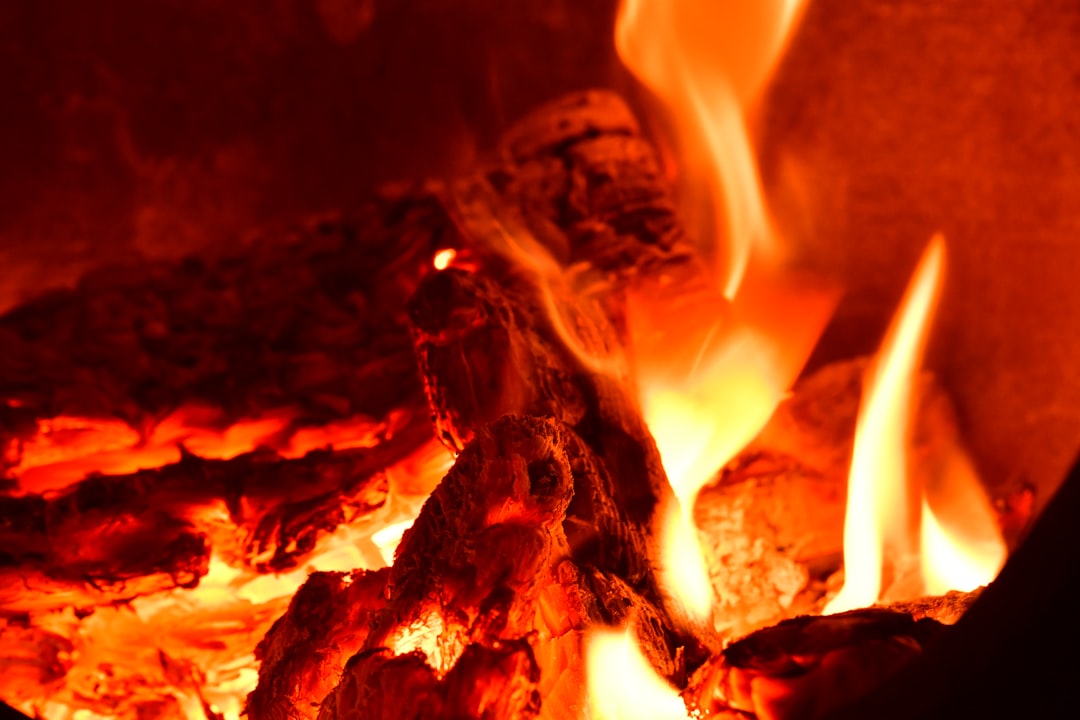Bake or Burn—Here Comes the Heat to North America
Preparation for temporary events is more critical than ever

It is already starting. First, there was the April heatwave no one seemed to notice—you know, the one that put temperatures thirty degrees above normal in a hundred different places. But it was only 85, so most people enjoyed it. Now there is the so-called "omega block" in western Canada where high-temperature records are being broken and hundreds of wildfires are burning. So far, 1,800 square miles have burned. In a statement of unique clarification, Terri Lang, a meteorologist for Environment and Climate Change Canada, said: "In the southern Northwest Territories, there's still ice on the lakes up there, and yet they're dealing with forest fires and towns burning down,” Lang said.
Scientists around the world are echoing this paper from Columbia University showing that El Nino, the climate event linked to oscillating temperatures in the Pacific Ocean, is going to make things worse. Especially if El Nino develops as they expect, 2023 thru 2025 will see record heat and extreme heat events around the globe.
In a report from Reuters, Carlo Buontempo, director of the EU's Copernicus Climate Change Service said this: ”El Nino is normally associated with record-breaking temperatures at the global level. Whether this will happen in 2023 or 2024 is not yet known, but it is, I think, more likely than not.”
The scientists are cautious, but to you and me, that’s an understatement. We are looking at record-breaking heat nearly everywhere. The US got it at a mild time of the year. Canada has it and is burning up. Asia had it a few weeks ago—Thailand, Laos, and Vietnam all soared in temperatures. As ABC News reported:
Sizzling temperatures of up to 45 degrees Celsius (113 degrees Fahrenheit) were recorded in monitoring stations in parts of India, Bangladesh, Thailand, and Laos last month — which was unusually high for the time of year.
No one is immune. Killer heatwaves will be the single most common manifestation of climate change, and they can happen anywhere.
In the short run, we need to prepare individually to survive them. Cities also need to prepare public spaces to support their citizens. I expect we will see similar moves in the faith communities, local governments, and even within the corporate world and its unusual access to resources.
At this time, the heat waves are temporary, even though sustained for several days or weeks. Temporary, but deadly. It does eventually cool off, but for those who perish, it is too late.
Excessive heat and wildfire seem to go hand-in-hand. Where I live, it is a clear day today, but I can’t see the sun—there is too much smoke in the sky from the Canadian fires. I am taking steps to secure access to cooling here in Wisconsin’s north woods, but I am concerned. It is, after all, the woods, which is to say the forest, which is where wildfires burn. I don’t have a defense against wildfire other than leaving, and all the forest ranger signs in the area are big letters on bright orange background: FIRE DANGER EXTREME they say. One accident or one fool could change everything in an instant.
This is the precarious edge we find ourselves on—bake or burn. Everyone in the US is facing the same questions everyone else is about these extreme events: what they will be, when they will strike, and where they will hit. How do you prepare? It doesn’t make sense. You wouldn’t think about your town burning down when the lake it is on is covered in ice. You’d be excused for breathing a sigh of relief when the rain finally came to drought-ravaged California, only to learn that you cake bake your soil so dry it won't hold rain. So when the heavy rains finally come, it’s not the relief you thought it would be. Instead of relief, people died in mudslides and floods.
Climate change is shattering our expectations. Instead of planning on what is nearly certain, we must anticipate what never happens. We do this in the hope that we can endure long enough to see the work that needs to be done is actually done. That could solve climate change, but that won't be for a few lifetimes. So let's get ready for the heat.
Anthony Signorelli
Recommended Reading
I found this article Faster Than Expected: Why Climate Scientists Are So Scared, on Medium and recommend Carbon 350 readers check it out. The reason: It includes a discussion of how conspiracy theorists think from one who was such a conspiracy theorist,m but has now seen the light. It is helpful knowledge if you ever discuss climate with a denier. As the title suggests, it also shows more about how climate change is moving faster than expected. If you read it and decide to join Medium, please come back and use this link: https://medium.com/@ASignorelli/membership. Yep, it is an affiliate link and helps support my work. If not, enjoy the article. It’s a good one.
Anthony



Yes, that is what I am talking about. The biggest risk is a power failure during a heatwave. In a separate conversation, someone pointed out that the transformers on the grid are only rated to operate up to 105 degrees F, which means above that the likelihood of failure increases.
https://www.nytimes.com/interactive/2022/11/18/world/middleeast/extreme-heat.html?smid=nytcore-ios-share&referringSource=articleShare